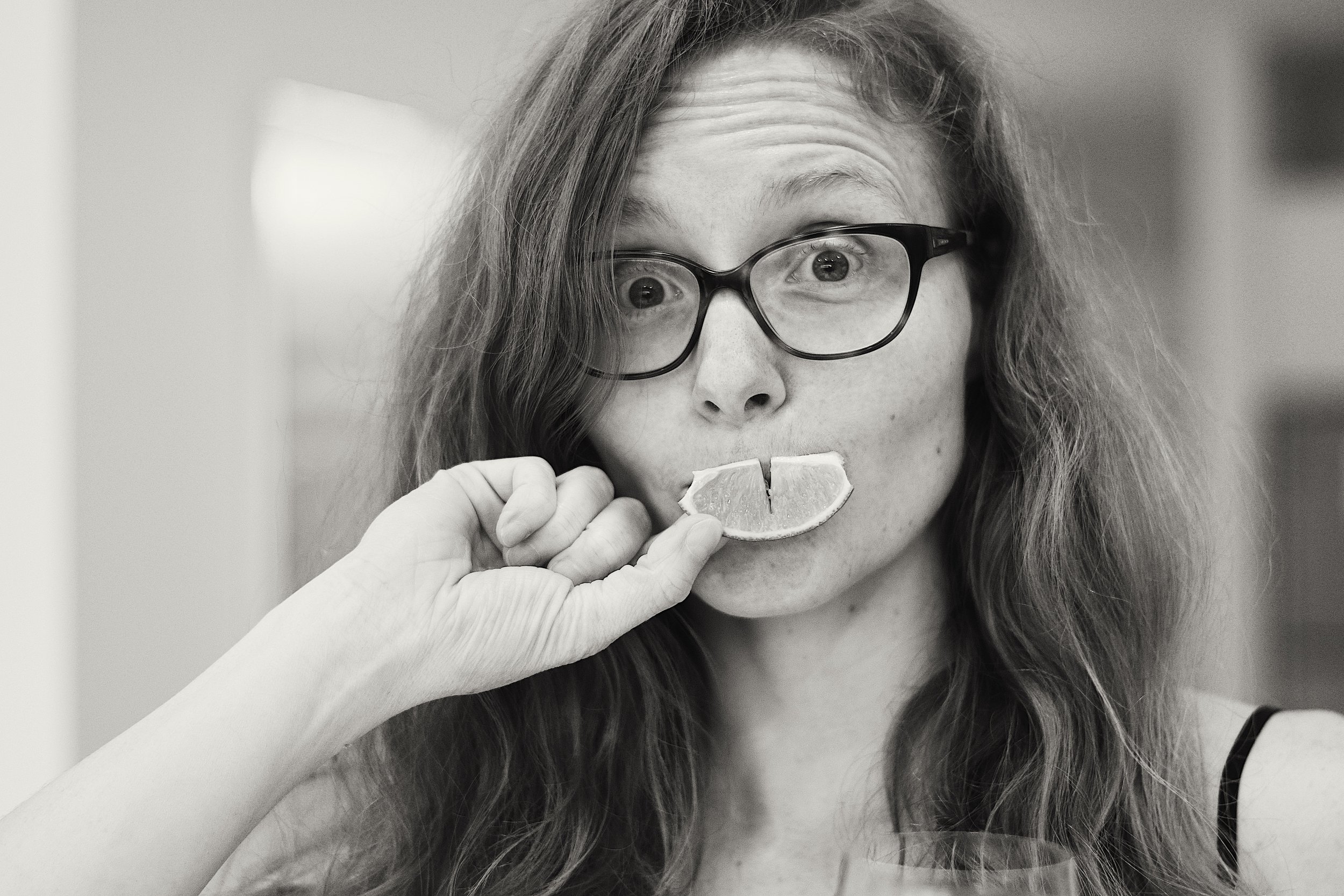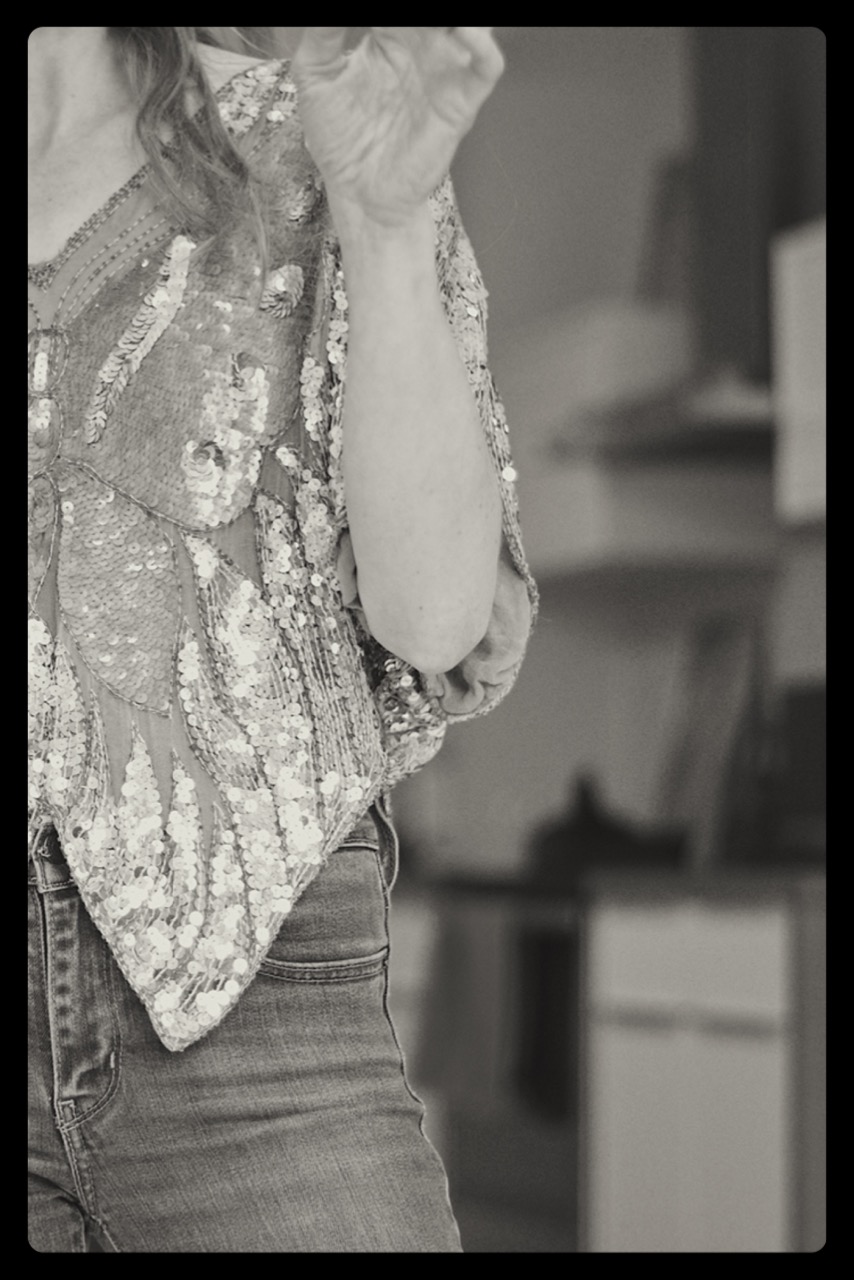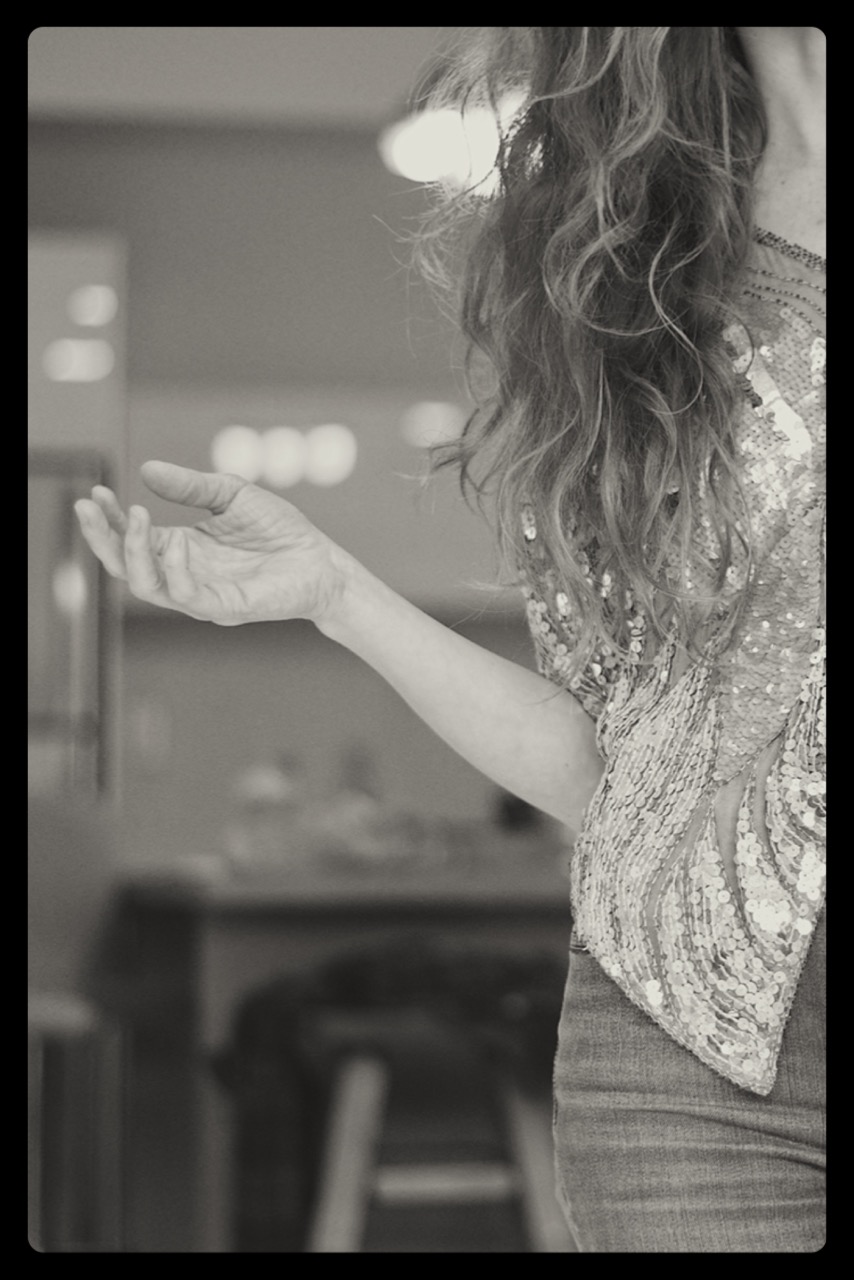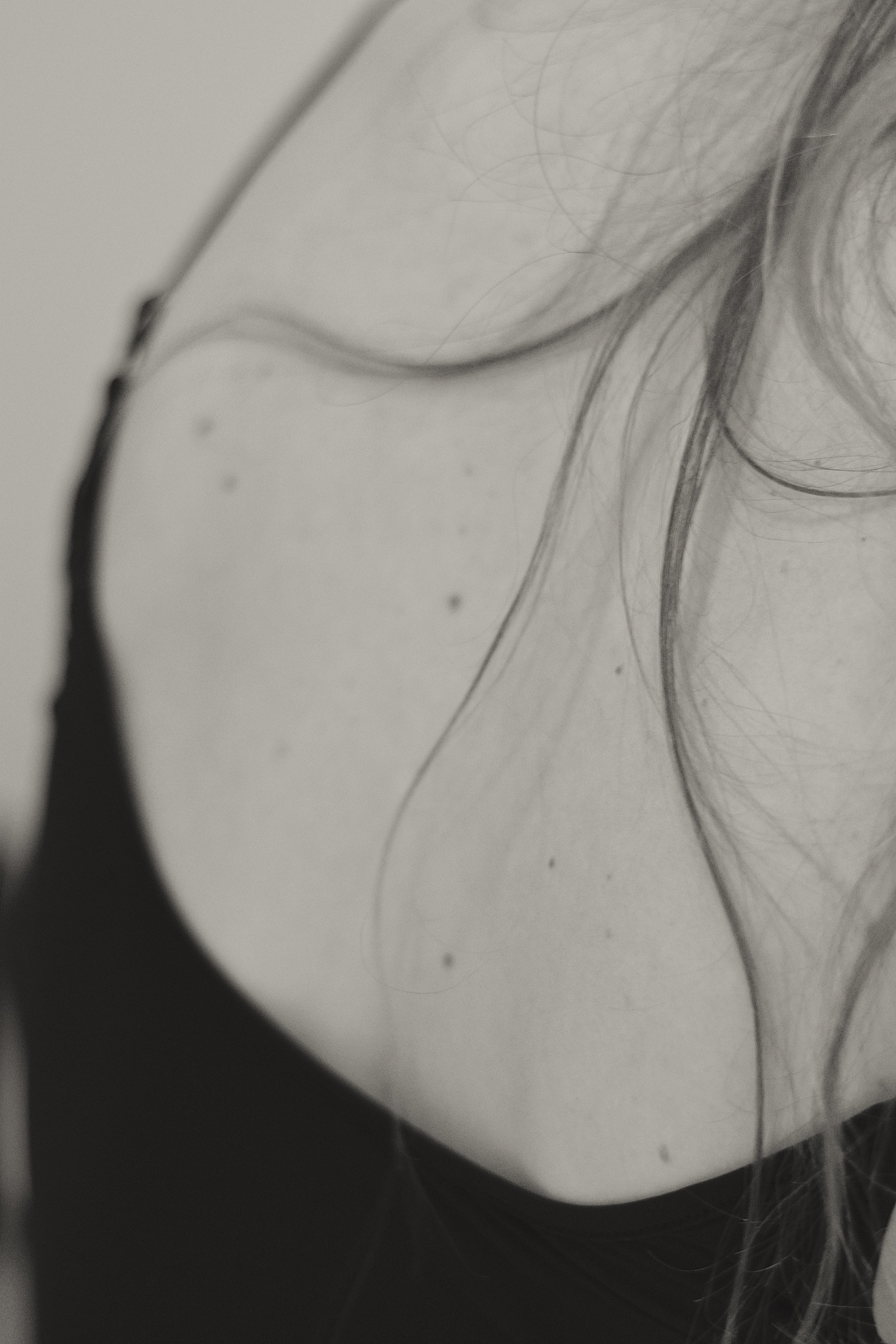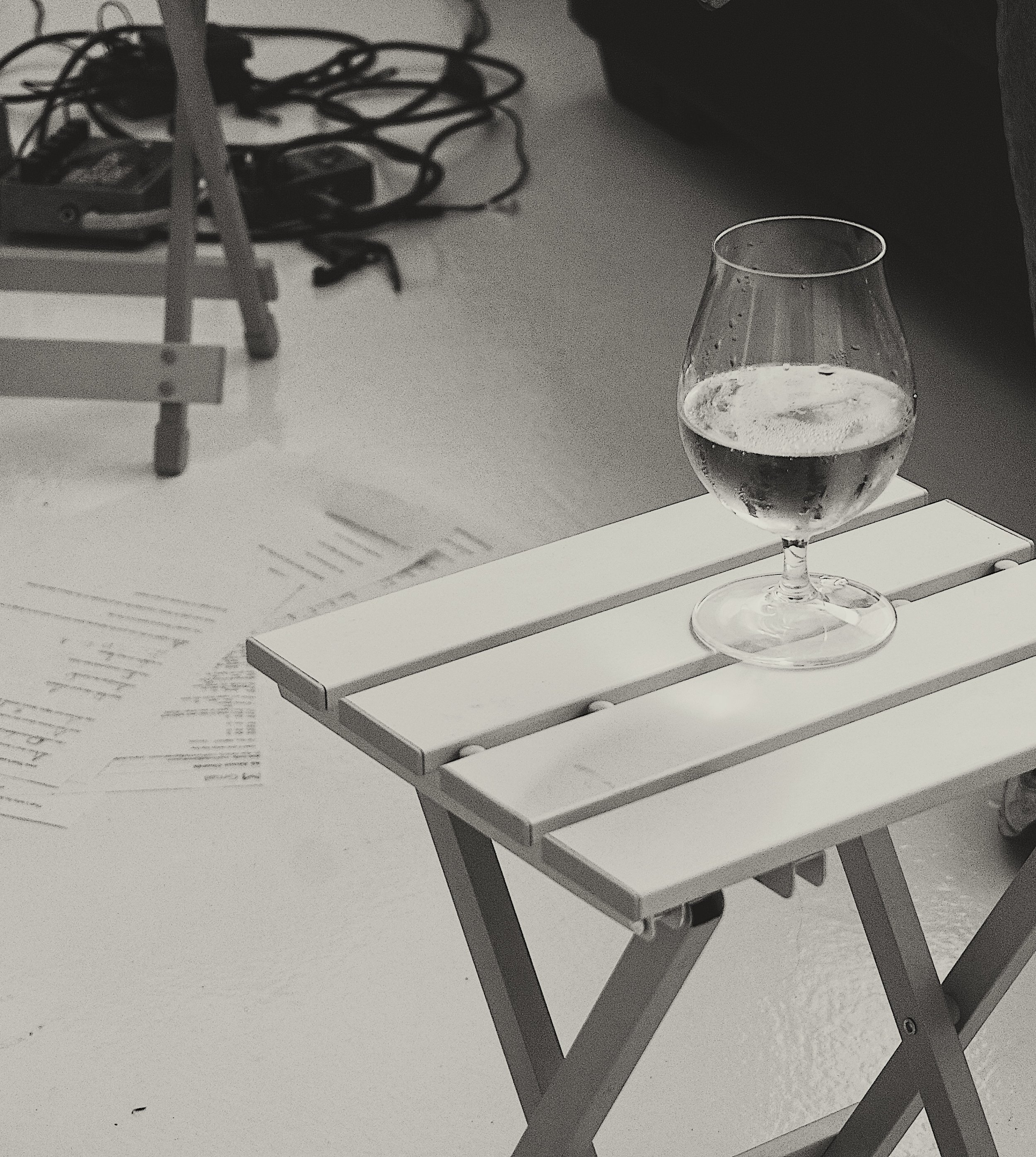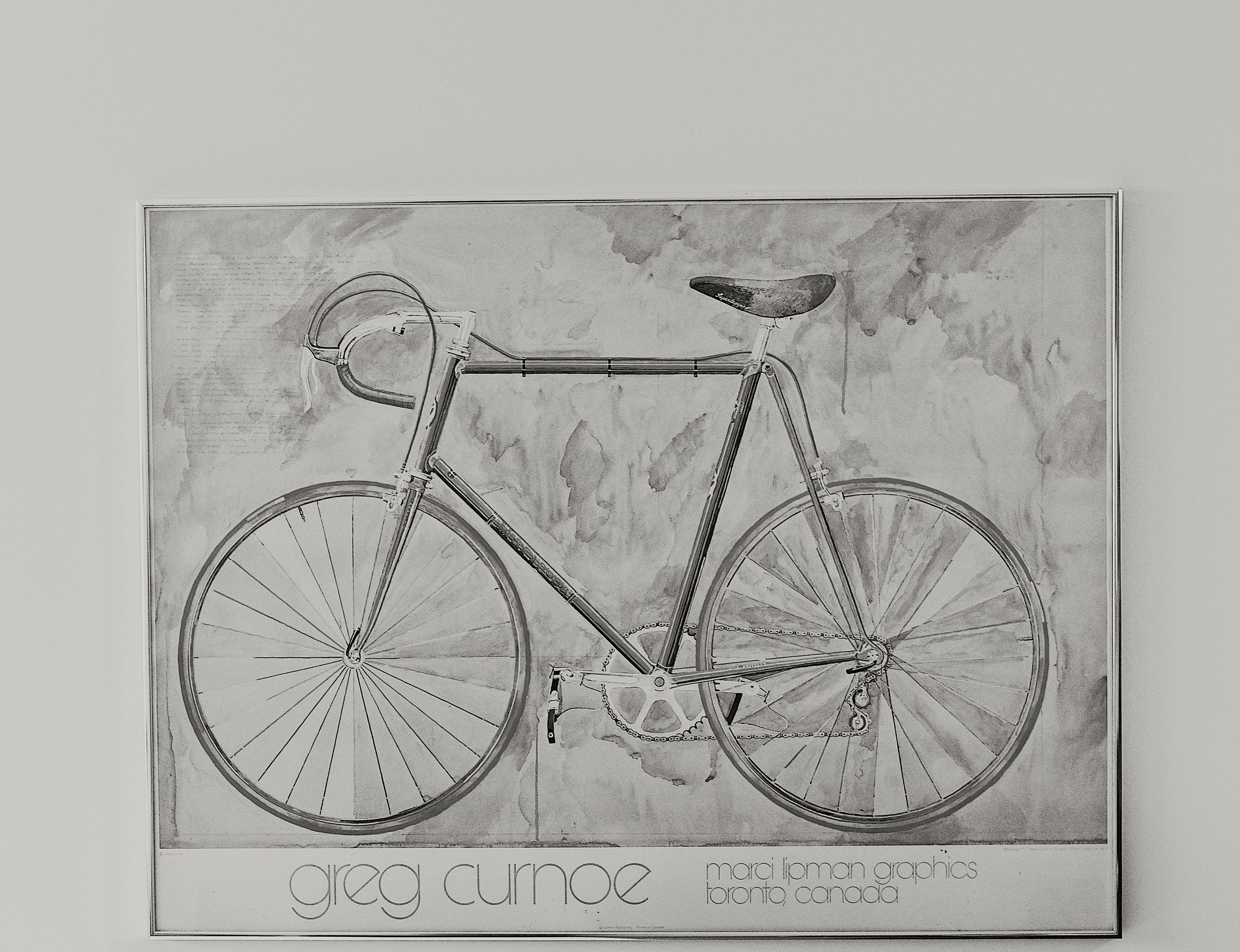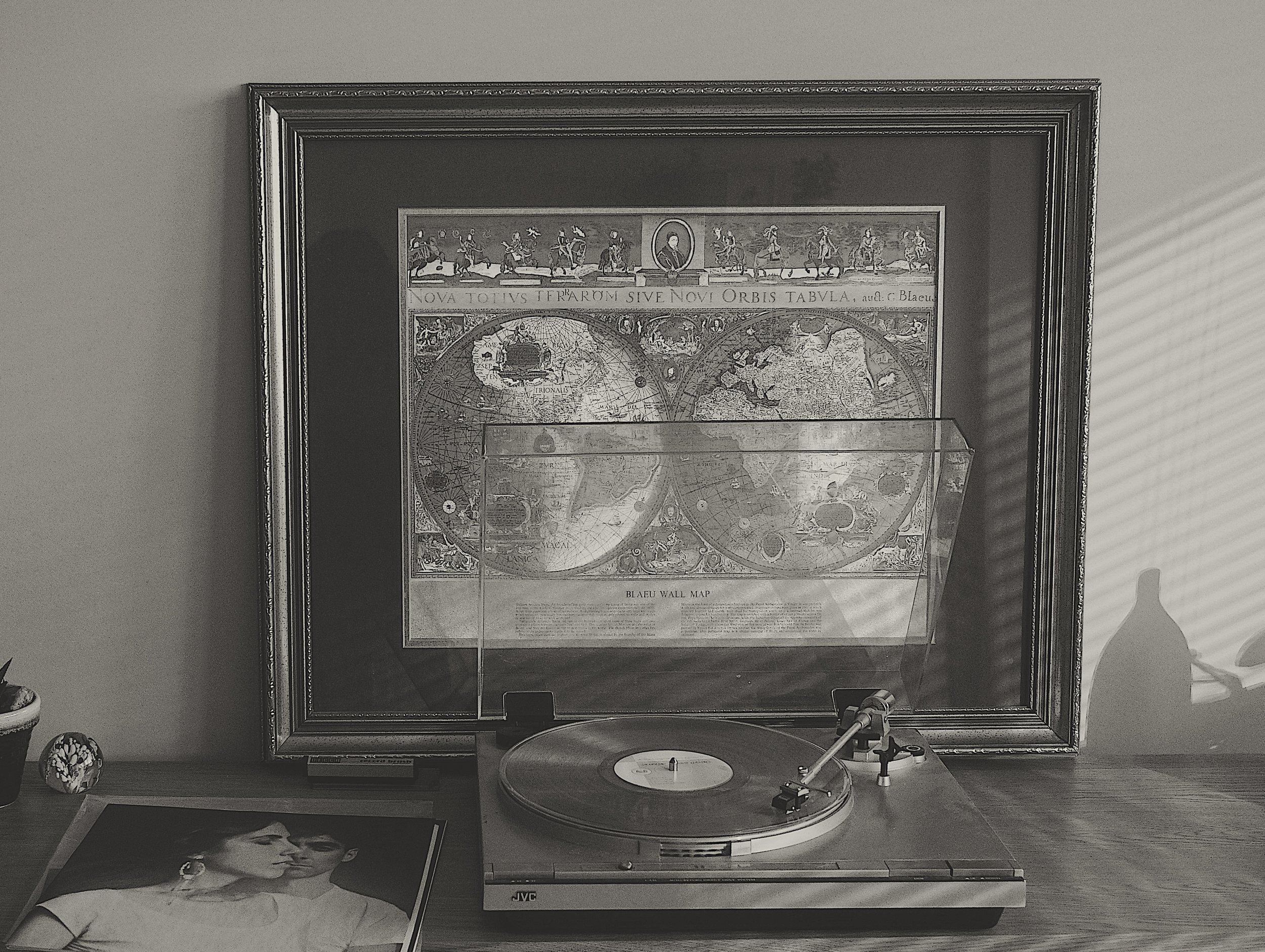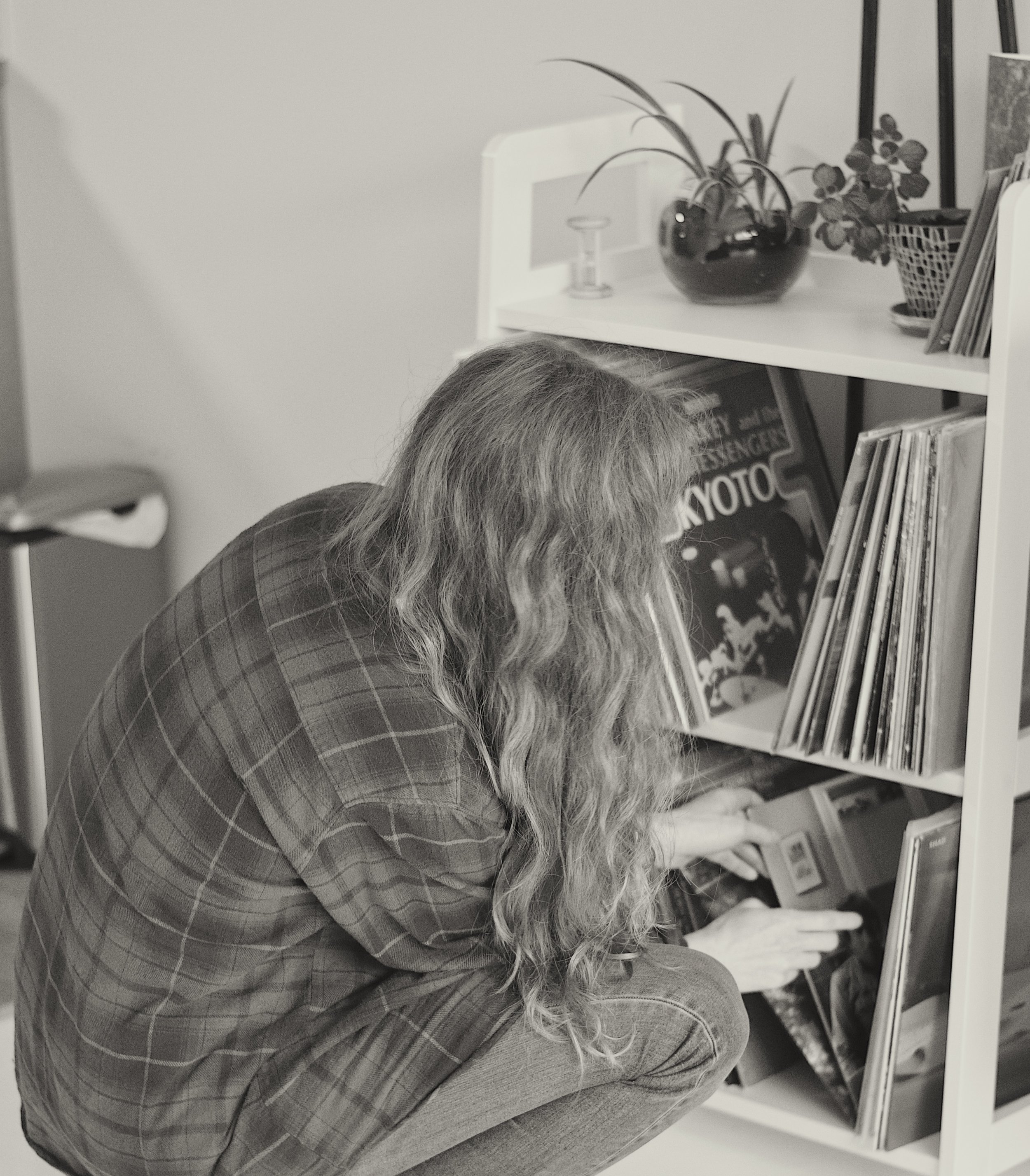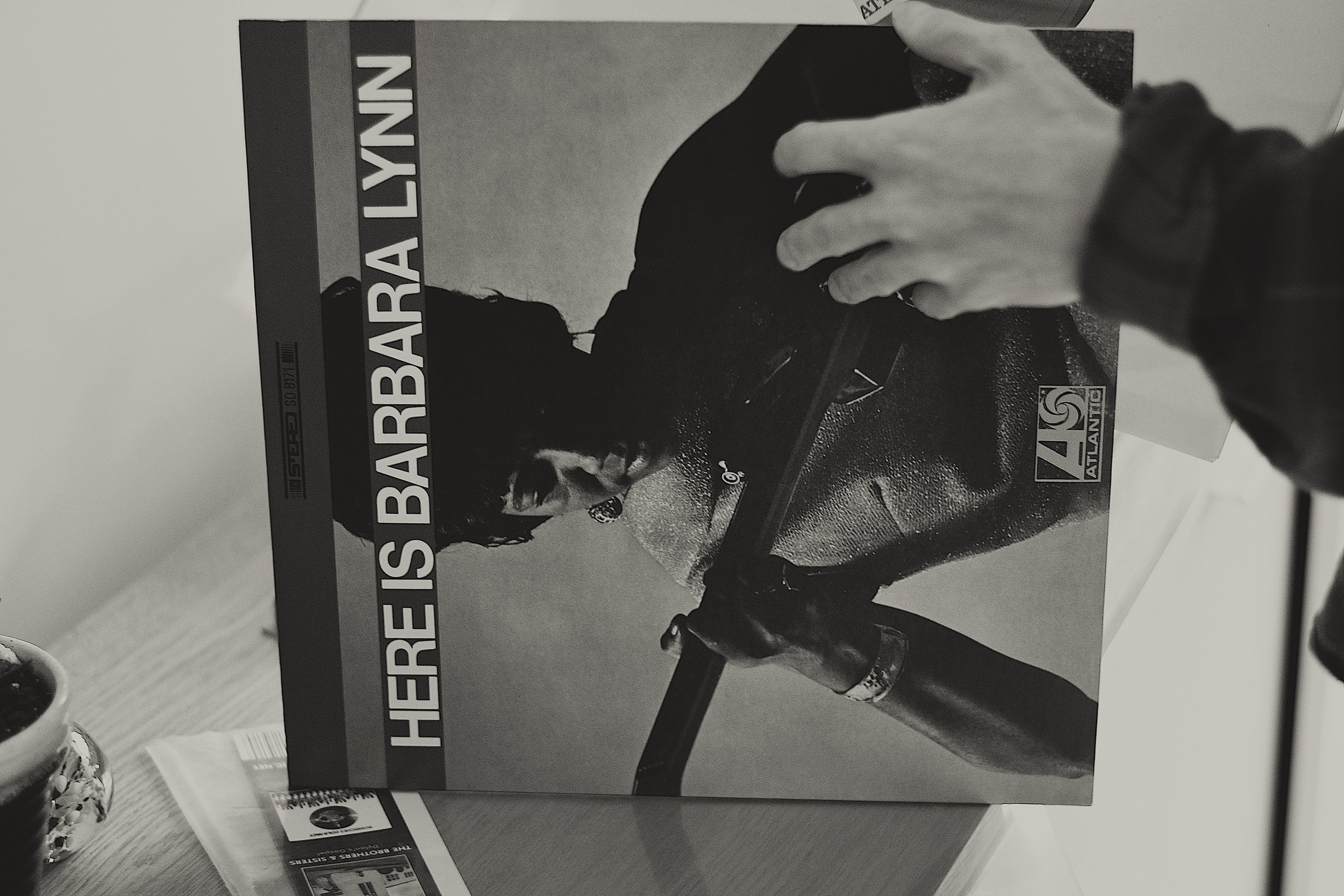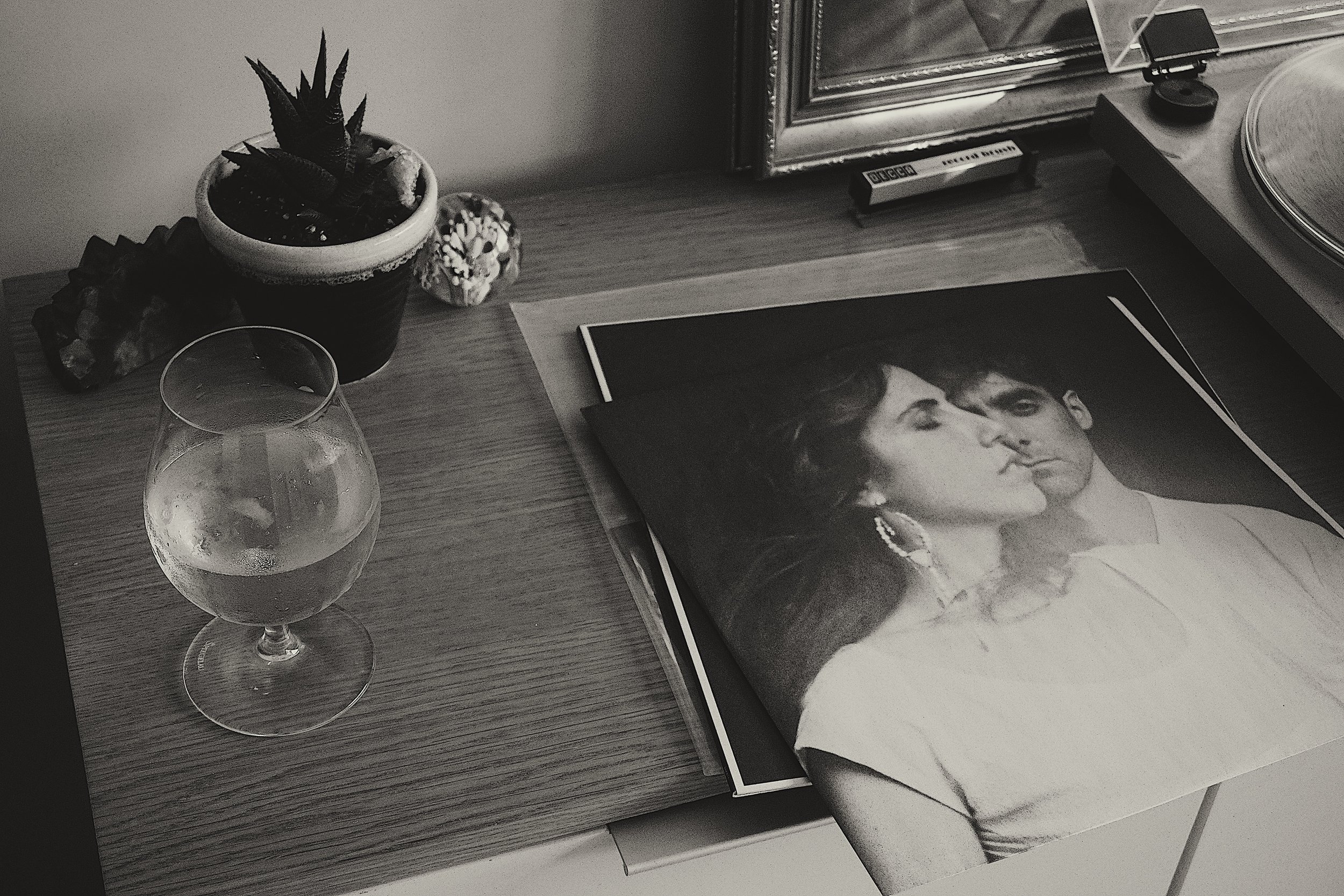MISHA BOWER
Speaking to Misha Bower for even just a few minutes, two things become immediately apparent: inquisition is paramount to her artistic practice, and that she’s keenly self-aware, with a razor-sharp sense of humour. We meet up in her new apartment tucked away in the Old East Village, that she’s breaking in with French 75’s and records on a loop. We discussed – without provocation – how she’s collaborative at heart; this passion pulls her from the pragmatics of her daily life as an educational aide at Fanshawe Collage and places her right in the middle of this new fantastical project. Fuelled by the connective nature of storytelling, Misha (who’s mother named her after the celebrated Russian ballet dancer) has a keen interest in the intricacies of memory. Hoping to marry the probings of the psychological together with the visceral of art, these ideas intercept and introduce Bower as a captivating songstress with her debut album Trying To Have It All. Telling compelling stories about the human condition with both wisdom and wit, Bower describes this project as something that “pairs well with low lighting, night-time walks and fantasies about telling someone how you really feel.” Below she discusses the inspirations of Trying To Have It All and why experimentation and collaboration has been critical to keeping her creative visions alive.
Story By Kerry Ssemugenyi
Edited By Sara Helm
YOU HAVE A REALLY UNIQUE NAME.
Yeah! Thanks to my Mom reading a Penthouse Magazine when she was pregnant. I guess back in the day you really did Penthouse for the articles. (Laughs) She was reading an article about Mikhail Baryshnikov, this Russian dancer. who in the article was periodically called Misha, which is the short form for Mikhail or Michael. So I have a Russian boy name!
TELL US ABOUT THIS PROJECT?
My intention is that this project will be a mechanism for generating more connections to community and more opportunities for community collaboration and involvement. Maybe more of a balance between the Fanshawe side of life or the educational helper side of life and the artist side of life. I mean, I don’t think those things are mutually exclusive, but I hope that releasing this project will kind of provoke me, in a way. There's a restlessness in me at this stage for some type of a change. I have some schemes – I always have schemes for days! – but I’m hoping this release will help me figure out which ones to focus on and how to nurture them.
WHAT SHOULD WE EXPECT FROM TRYING TO HAVE IT ALL?
From the listening experience: ‘Trying to Have it All’ pairs well with low lighting, nighttime walks and fantasies about telling someone how you really feel.
From the release: so far, it’s shaping up to be a pretty idiosyncratic release. I’ll be playing some shows, of course, but am also trying to envision events and projects that include storytelling and perhaps an opportunity to share and discuss some of the ideas I’ve come across relating to psychology and art. I want to support the album properly, but also realize it’s a tool I’ve created to help make some changes in my life. Expectations aside, my hope is that people enjoy the record and that I enjoy the process of releasing it.
‘‘We have stories in historical time and then we have stories in experienced time. I am interested in that. It's all in how we interpret the events, how we make meaning out of the events. That's what's formative.’’
WE ALL HAVE STORIES!
We have stories in historical time and then we have stories in experienced time. I am interested in that. It's all in how we interpret the events, how we make meaning out of the events. That's what's formative. You read an autobiography and its not highlighting every single fact that happened to that person in the chronology of their life. They pick bits and pieces that they feel add up to the story of who they are as an identity. How do we understand and derive meaning from our experiences? How do we build up these habits of interpretation over time? You can take two different people with the same fact set but how they have interpreted those things could be so different, which is intriguing!
CAN YOU SHARE A LITTLE BIT ABOUT YOUR RELATIONSHIP WITH STORYTELLING AND MUSIC? & YOUR INTEREST WITH PSYCHOLOGY IN RELATION TO ART?
That’s something that’s expanded for me in the last couple years, so I have a couple answers. The first comes from imagining music and storytelling as they appear in culture, as art practices that result in books and records and scheduled performances and things like that. I know that being a musician has been a huge part of forming and deepening relationships. For example, I’m not sure what my life would be like now if the formation of Bruce Peninsula was suddenly deleted from 2006. From that node of life, there are countless lines that connect to other people, places, experiences, including this new experience of making and sharing a record. Writing stories has also been a way to share and connect, but in a different way. The connection to self is deeper for me with writing, since it entails relatively more solitude. More time in the inner life zone, not imagining an audience. More so than music-making, which is very collaborative for me, writing is a form of time alone I really enjoy. A way of spending quality time by myself.
The second answer to your question comes from imagining the role of music and story in our daily lives, which is something I’ve reflected on more as I’ve continued to explore the relationship between psychology and art. I’ve come to think of music and storytelling as intertwined processes at the root of identity. For example, a song can be viewed as a cultural artifact that exists outside us, as well as an extension of a natural musicality within us. I’m thinking of a very cool researcher named Colwyn Trevarthen as I answer this. He uses the metaphor of ‘musicality’ to describe processes of synchronization that bind our impulses and experiences into a flow of action that can be described in terms of narrative. The ongoing story of who we are, as individuals and members of community. Music and story in our lives can easily go unnoticed, like the functioning of our vital organs goes unnoticed. But when we’re engaged in deliberate synchrony at a show, for example, or storytelling at a group meeting, those parts of us can get amplified. This amplification might be like the effect of a ritualized silence or mediation, where the involuntariness of breathing is suddenly felt as an awareness of life.
WHAT ROLE DO YOU THINK CREATIVITY PLAYS IN SOME OF THE WORLD’S BIGGER CONVERSATIONS AND HOW DO YOU THINK SELF EXPRESSION IS CONTRIBUTING TO THE SHIFT IN THINKING?
Wow, that’s a biggie. When I think of bigger conversations I think of topics like fairness and equality, the colonization and decolonization of experience, the role of technology in our lives, the evolving conception of what it means to be human, the deepening inquiry into how humans are impacted by their experience, the role of government in our lives… I think the role of creativity in any conversation has to do with inducing shifts in perspective and imagining something other than what is. For example, a creative approach to a problem will likely result in something other than ‘the way we’ve always done it.’ I think self-expression can induce a shift in thinking for both the expresser and the audience. For the expresser, telling your story or sharing your ideas can be a way to imagine that story differently or investigate those ideas more deeply. For the audience, hearing other people’s stories or ideas can induce a shift in how we think about ourselves, others and circumstances in the world. A few personal examples that come to mind are my conception of gender, my relationship to settler identity, and the meaning of allyship. More and more, I feel like my eyes have been getting peeled on these topics by an ongoing cultural conversation, in a way that continues to reshape how I think and act in the world. I think an effect like this, multiplied by many expressers and audiences, contributes to those shifts in thinking we feel rather than just observe.
‘‘Music and story in our lives can easily go unnoticed, like the functioning of our vital organs goes unnoticed. But when we’re engaged in deliberate synchrony at a show, for example, or storytelling at a group meeting, those parts of us can get amplified.’’
WHAT DO YOU LOVE MOST ABOUT THE LOCAL FLAVOUR HERE AND HOW DO YOU THINK THE CITY SUPPORTS SMALL BUSINESSES AND CREATIVES IN GENERAL?
To be honest, I think I’m still becoming a citizen of my home town in some ways. Moving back here from Toronto, for years I feel like I put London in a ‘family, work and school’ compartment and Toronto in a ‘friends and culture’ compartment. The result has been a late-blooming effect with respect to how I engage with my own local culture. That said, I do feel like I’m part of a community of friends and artists and entrepreneurs here in London, a community of students and educators at Fanshawe and Western – I just know that I want to deepen that connection, which is one aim of stepping out with this project. When I observe the work of Out of Sound, B13, Life of Leisure, Rezonance, Soft Flirt, Tania Floral, DNA, Arts Project, LGRC, The Root Cellar (to name just a handful)… I see a well-roundedness that I really admire. These initiatives are unique and (I assume) personally enriching, but they also mix together and reach out to community in really creative and conscious ways.
WHAT IS ONE QUESTION YOU WISH PEOPLE ASKED YOU MORE OFTEN?
“Excuse me, ma’am, I see you’re composing an Instagram post in a Word document. Would you like a hand with your social media?” *Laughs*



